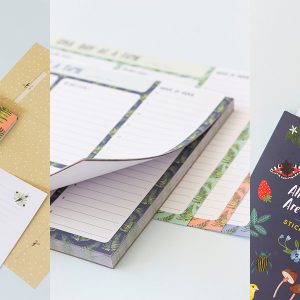Fear and panic: we are all a little more susceptible to these two emotions at the moment. Fear, because we don’t know what to expect; panic, because sometimes things get too much. So how can you stay calm? Online editor Bente, who has a lot of experience with anxiety and panic attacks, shares her tips.
During my burnout, panic and fear were my best friends. Not that I wanted them to be; I would have preferred to send them packing. But they had other ideas; they simply hung around. They came to visit anytime they wanted: sometimes while I was cooking, often at night, and even during the most inconvenient moments such as during a meeting, on a plane, while I was far from home. But how do you deal with these feelings? I believe that differs per individual. One person may benefit from sitting on a meditation cushion, another prefers to dance it out. What I strongly advise is this: look for what helps you. And that’s no easy task, because where do you start looking? Here are five tips that helped me a lot.
-
Allow it to be
Chasing away those feelings as if they are uninvited guests won’t help at all. You run the risk of making them angrier (and therefore bigger) if you try to get rid of them without listening to them. Remember that these emotions are there for a reason. They serve a purpose: to warn you of imminent danger.
So just try to let the fears be there. Let that heart of yours beat faster, let those thoughts run wild in your head and let that breathing go too fast. You are safe and if it really gets too much for you—and trust me, I’ve been there—remember this is only temporary. Think of it as a raging sea: the waves that wash over you cannot always stay sky-high. Do not swim against the current; instead, let yourself be carried away by that strong current until the sea (and you) become calm again.
-
Use your senses
When you find yourself in the middle of a panic or anxiety attack, it can help to bring yourself back to the now by using your senses. Name five things you can hear, five things you can smell and five things you can see and feel. This helps calm me down when I want to race away from my own emotions and thoughts.
-
Write it down
Keeping a diary is by no means dull or stupid or childish. Writing things down helps in several ways: it can make you worry less at night (because you have put everything that’s on your mind onto paper during the day or at bedtime); it gives you a bit more of an overview of your tangled feelings, emotions and thoughts; and it helps you to have more compassion for yourself.
As Elizabeth Gilbert puts it so nicely in her talk about fear: “The opposite of fear is not courage. The opposite of fear is compassion. You cannot chase fear out. You can only bring love in. Bring love in, and the fear starts to subside. Bringing enough love to your heart that you feel you’re cradling yourself with infinite tenderness and the fear will have no choice but to start to relax its hold on you.” But ‘bringing in love’ sounds rather complicated. Because how the hell do you do that? For me it helps to write down nice things, addressed to myself. I can now tell myself things that I sometimes wanted to hear from others. That it’s okay that I’m feeling anxious, for example; that I can really get through this; and that I am strong, no matter how weak I feel at that moment.
-
Do a useless chore with the utmost concentration
Do not expect to be able to do all kinds of difficult chores or tasks when you’re in a state of anxiety or fear, as often that is not at all possible. Instead, find a pastime or activity that is not too complicated, but that you can do with great concentration. For example, a puzzle or drawing your houseplants. You still allow those difficult and troublesome feelings and emotions to be there, but you don’t fully focus on them.
-
Go for a walk
It might not be possible to do that right now, but if—and/or when—you can, then go out for a walk. When my fear becomes too great to bear, I always go out and take a walk around the block or go to the forest or the beach. Feelings and thoughts always seem to lessen during a walk. I don’t have an explanation for it, but it always helps me when I’m not feeling great.
Remember, don’t worry if these tips don’t help you. It’s also okay if you don’t know what works for you. You’ll get there instinctively, you don’t have to do anything special. I also want to emphasize that it’s okay, perfectly normal even, to feel afraid. Afraid that feelings and emotions will never pass or that you will lose control. Afraid of what the implications of that will then be. The only thing that you need to do is simply to be. Just keep breathing (fast or slow), nothing more. And maybe these words will also help: It’ll be okay. It’ll be okay. It’ll be okay.
- We also compiled some tips on how to feel less alone.
Text & photography Bente van de Wouw; Translation Julia Gorodecky Photography Masaaki Komoru/Unsplash.com














